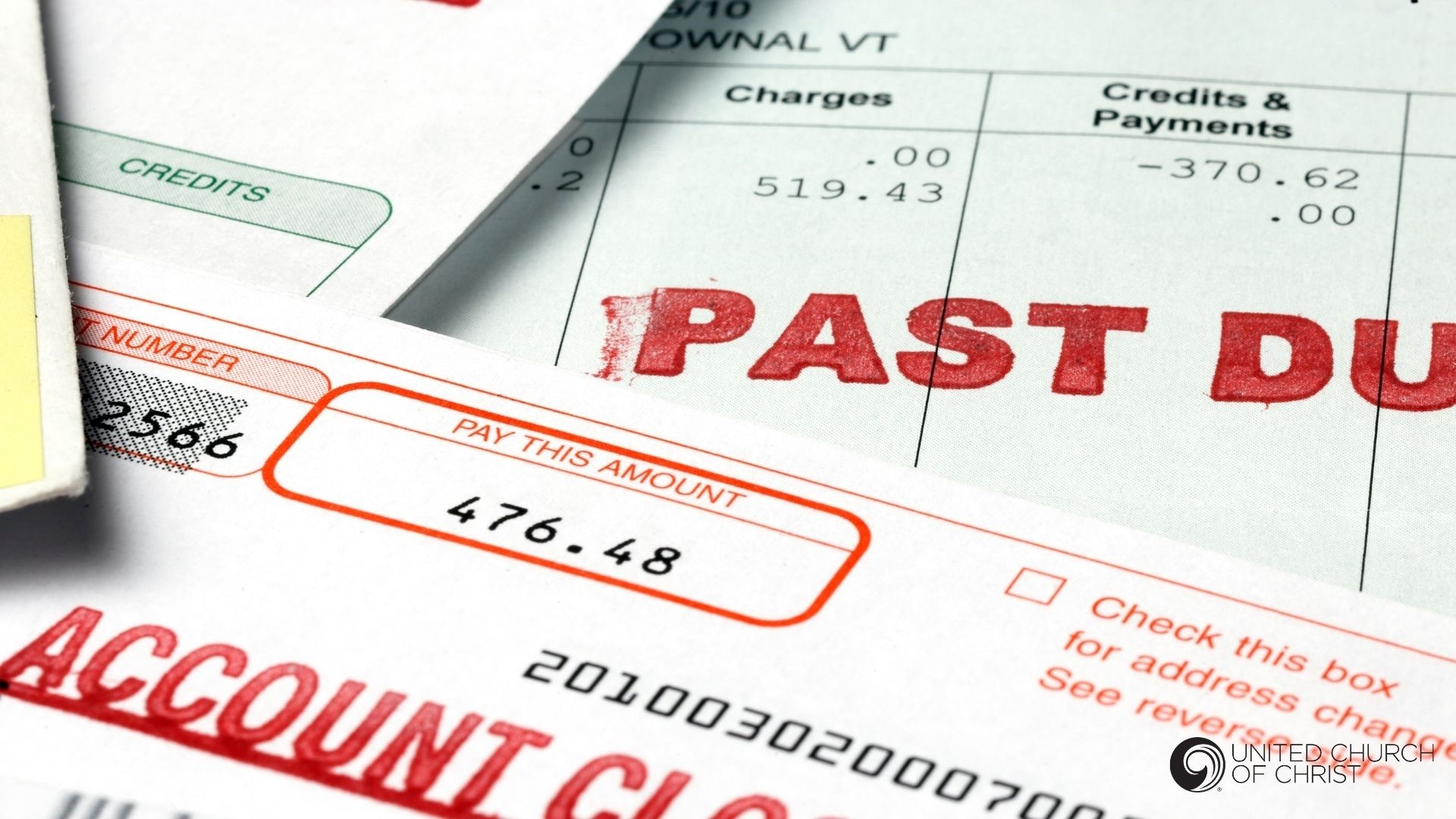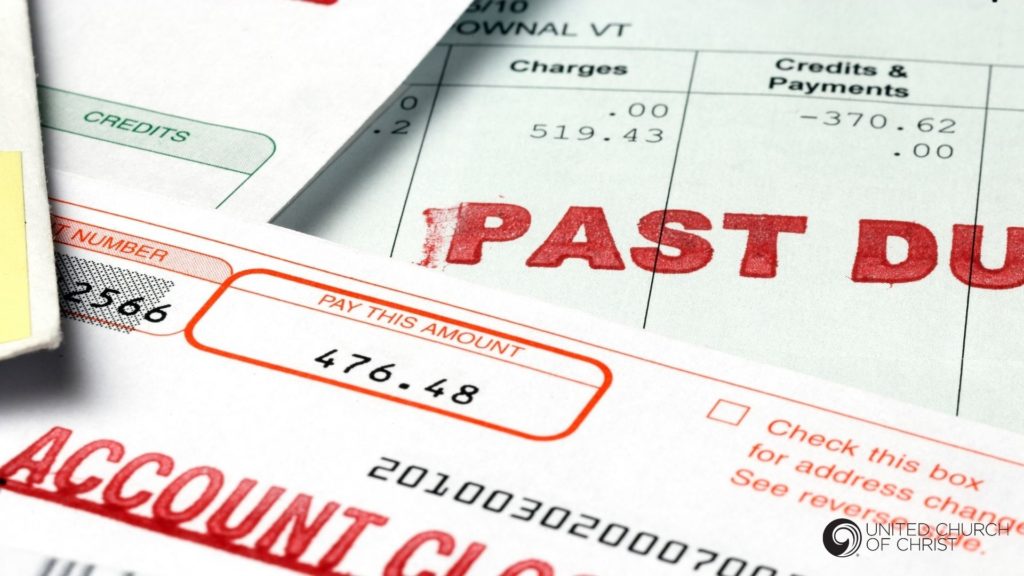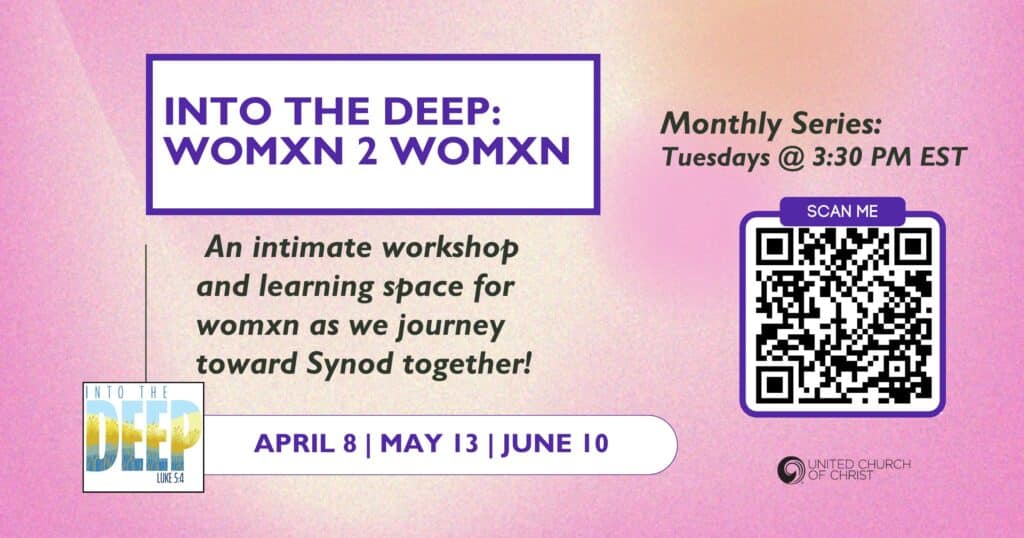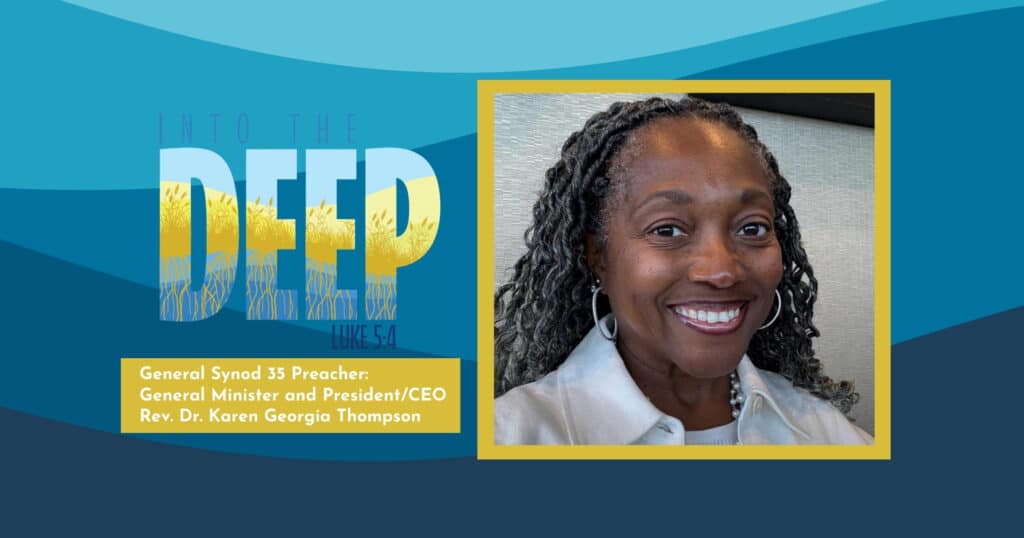UCC members, congregations abolish $5.2 million in medical debt for Kansans, Oklahomans
 As Thanksgiving and the December holidays arrive, more than 3,200 households across 76 counties in Kansas and 60 counties in Oklahoma will soon be receiving letters telling them that their medical debt has been forgiven.
As Thanksgiving and the December holidays arrive, more than 3,200 households across 76 counties in Kansas and 60 counties in Oklahoma will soon be receiving letters telling them that their medical debt has been forgiven.
In the latest chapter of an 18-month campaign across the United Church of Christ, financial gifts from 20 UCC congregations in the denomination’s Kansas-Oklahoma Conference, plus several individuals and church bodies, have abolished $5.2 million in medical debt in those two states.
At a Nov. 24 news conference, local, regional and national UCC leaders announced that a Conference-wide fundraising campaign, birthed before the coronavirus pandemic, along with a contribution from a national ministry of the UCC, raised $40,000. The gifts were sent to the New York-based nonprofit RIP Medical Debt, which bought up debt for pennies on the dollar in October.
The purchase wiped out $5,211,729 in medical debt for 3,234 households. The average amount forgiven per household was $1,612.54. Contributors to the campaign are listed here.
‘This is going to be huge’
“Medical debt is something you don’t think will affect you personally,” said Lori Herpich, a member of Plymouth Congregational UCC, Lawrence, Kan., one of the contributing congregations. Though not herself a recipient of relief from the debt buy, she said she was excited when she heard about the project because “I definitely know what it’s like to have medical debt.”
“A few years ago I had to have multiple surgeries, and the bills that came from them were just huge,” Herpich said. “It caused stress, it was overwhelming, and it seemed like it was never going to end. … Just knowing that there are families that are going to get contacted, that their debt has been eliminated, that it has been resolved — this is going to be huge, believe me.”
“Medical Debt is just another expression of the unjust systems that are so deeply entrenched in our country,” said Edith Guffey, Kansas-Oklahoma Conference Minister. “We are a small Conference; 53 churches. We have a handful of larger congregations, but we are comprised primarily of small churches, a mixture of urban and rural, located in mask wearing and mask resisting communities. We did this important ministry together, across two states, because medical debt doesn’t care who you are or how you vote, or where you live. The only thing that matters is if you can pay. Love of neighbor is easy to say, but it doesn’t pay the bills. … What a gift to our members to have the opportunity to be a part of making a tangible difference in the lives of thousands of families throughout Kansas and Oklahoma.”
“One of the roles of the church is charity, but another equally important and different role is that of justice,” said the Rev. Chris Moore, pastor of Fellowship Congregational UCC, Tulsa. “During a pandemic it becomes even more important for the church to step in, disrupting unjust systems like ones that subject people to financial ruin simply because they have become sick or injured. If marshaling our resources for medical debt relief isn’t ‘being the church,’ I don’t know what is.”
Who qualified for relief
Specific criteria were used in the buy. Qualifying debtors were those earning less than two times the federal poverty level; in financial hardship, with out-of-pocket expenses that are 5 percent or more of their annual income; or facing insolvency, with debts greater than assets.
The debt buy was made anonymously; the UCC does not know who specifically benefited from it. Through RIP Medical Debt, a yellow envelope bearing a UCC logo is on the way to each benefiting family, with a letter naming contributing congregations and organizations. It reads: “You may never enter the doors of one of our churches, but we are the United Church of Christ and we love you. … Most importantly, you are beloved by God and your debt has been forgiven.”
Other speakers at the news conference included:
- Bobbie Henderson, a member of Fellowship in Tulsa and president of the Conference. “People don’t incur medical debt on a whim,” she said. “It is thrust upon them — mostly, unexpectedly. They find themselves in dire health situations that become compounded by the mountains of bills they face — too often, because of the failure of our society to see that all Americans have access to quality health care.”
- The Rev. Lori Walke, senior pastor of Mayflower Congregational UCC, Oklahoma City, which contributed a portion of its benevolence fund toward the effort.
- The Rev. Gage Church, pastor of Central Congregational UCC, Topeka, Kan., which raised $3,140 for the effort through its annual chocolate sale and other donations.
- The Rev. Michael Vollbrecht, pastor of Peace UCC, Alma, Kan., a “tiny” congregation that contributed money raised from its Lenten suppers last winter.
- The Rev. Sekinah Hamlin, minister for economic justice in the UCC’s national ministries, who said, “We will continue efforts to cancel debt, but we will also not rest until predatory financial products no longer prey on families, unfair debt burdens do not block individuals from creating wealth, and ultimately, the economic systems of this country no more have the stench of racism that drives despair and inequity.”
- The Rev. Traci Blackmon, associate general minister of the UCC, who called the Kansas-Oklahoma effort “nothing less than astounding.” “This effort on behalf of the United Church of Christ is not solely about charity, and it’s certainly not so that we can pat ourselves on the back,” Blackmon said. “It is our way of calling attention to a justice issue that runs deep in the fabric of our United States. It is our way of saying that the gospel that we believe and promote requires us to fight and stand for health care for every citizen.”
More relief coming in 2021
To date, $57 million in medical debt has been abolished by United Church of Christ.
The UCC’s medical debt project began with a 2019 buy in Chicago, where church donations abolished $5.3 million in debt for 5,888 families on the city’s South Side.
In January 2020, the effort moved to St. Louis, where $12.9 million in medical debt was eliminated for 11,108 households in that city and St. Louis County.
This summer, nine California congregations in the East Bay Area wiped out $7.4 million in medical debt for 3,539 households across the state.
In October, a collaborative effort by 122 United Church of Christ congregations, four Associations, and more than 100 households in the Southern New England Conference abolished $26.2 million in medical debt in two separate buys. Recipients were families in seven states in and around New England and first responders across the country who benefit from RIP’s Helping COVID Heroes Fund.
The campaign will continue through the summer of 2021, reaching low-income Americans in each of the UCC’s geographic regions. A sixth buy is in progress in the UCC’s Central Atlantic Conference, covering Maryland, Virginia and the District of Columbia.
“It’s almost Thanksgiving, and it may be hard to feel thankful this year,” Guffey said near the end of the Kansas-Oklahoma news conference. “So many lives lost, so many ill, so many traditions put on the shelf because of this unrelenting virus. May our work together, this announcement today, be a word of hope and thanksgiving for what is possible, even when the road is long and the future unknown.
(UCC News Director Connie Larkman contributed to this article.)
Related News
2025 Climate Hope Art Contest award winners plant seeds of hope
The celebration of the 2025 Climate Hope Art Contest for children and youth of the United...
Read More‘Not your typical webinar’: Womxn 2 Womxn series aims to foster community
As the church works towards gathering this summer at General Synod 35 in Kansas City,...
Read MoreThompson to bring a ‘prophetic and pastoral’ message to Synod: ‘We are not all the same, but still one body’
On Sunday, July 13, the Rev. Dr. Karen Georgia Thompson will take the stage at the 35th...
Read More




